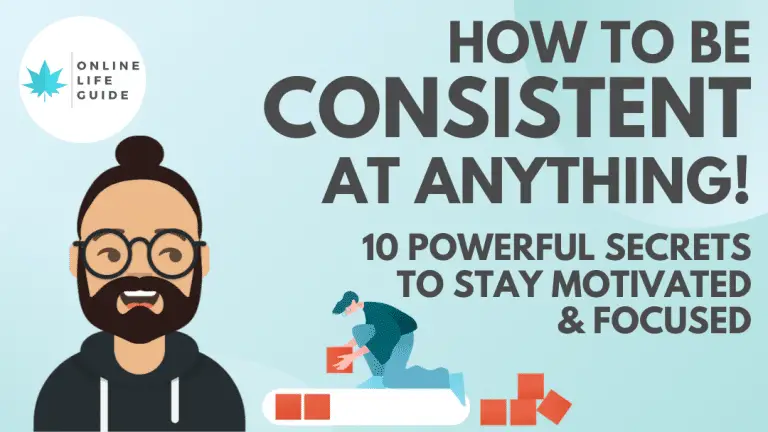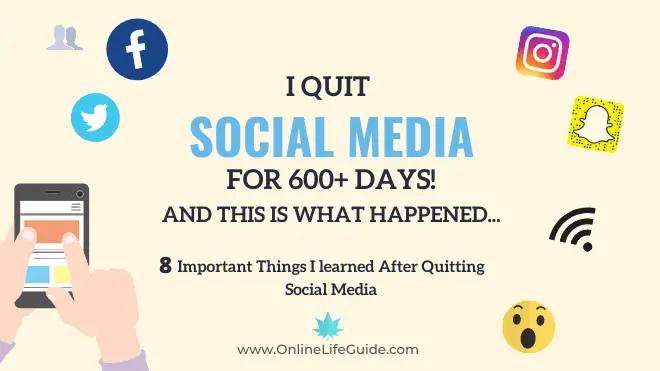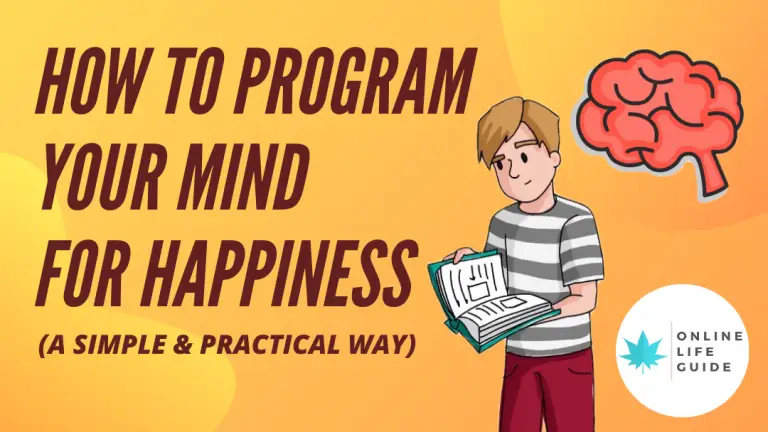14 Clear Signs You Have Matured as a Person

This article is part of a series of articles that discuss emotional maturity in-depth. You can read the full series here. In this particular guide, we’ll dive into the 14 most prominent signs of maturity.
A person’s mental age isn’t always in alignment with their physical age.
Some people, even though physically young, have accumulated decades of wisdom and maturity because of having a ton of exposure and experiences to different aspects of life early on and being around wise people.
While others may have grown older physically, parts of their mind and personality remain stuck somewhere in their younger years.
It could be because of some traumas, insecurities, deprivation of emotional needs, or generally because of a flawed upbringing.
This emotional immaturity is often the reason behind a lot of troubles and chaos in our personal and professional lives.
It ruins our relationships, stunts our progress in life, and keeps us miserable if we don’t actively work on breaking out of these patterns.
If you are wondering about your own level of maturity, after you’ve read the whole article, grab a paper and rate yourself out of 10 for each of the characteristics of maturity below. Then add it up and see how much you score out of the total of 140.
This will give you a rough idea of where you need improvement. I’ve written a separate guide on How to Become More Mature which you can find in the link at the beginning or toward the end of this article.
1. You Don’t See the World as Black and White
One of the first signs of mental and emotional maturity is that you start seeing the intricacies and the complexities of life.
You begin to realize that there are a lot more things to consider in a particular scenario before drawing any conclusions. So you start to hold back immediate judgments based on emotions and give yourself time to analyze and reflect.
You don’t villainize someone immediately just because of their bad behavior with you and you don’t see things as negative when something doesn’t turn out in your favor.
You allow yourself the space to reflect on the different aspects of the situation or the person.
2. You Are Less Egocentric
Emotional maturity means you are able to differentiate between emotional and rational thinking. With maturity, you prioritize logic and reasoning over your emotions when making decisions and even during daily actions and interactions.
You don’t allow your ego to get between your relationships. When it comes to resolving conflicts, you are the first to keep your ego aside and be the bigger person.
During emotionally charged situations, you don’t make rash and impulsive decisions because you realize that those are rooted in ego and you are able to foresee the consequences of making such decisions.
3. You Practice Silence Often
The more mature you get the more you value your mental energy. You start to preserve it by speaking less often and when necessary.
You practice silence in situations where you know that arguing is of no use or will worsen the situation.
You realize that the person you’re addressing is either not in the right state of mind to absorb what you’re saying, or not mature and open enough to consider other perspectives, which leads us to our next sign…
4. You Are Open to Consider Other Perspectives and Realize You’re Not Always Right
When we are young and naive, we tend to be very adamant about our opinions and perspectives. The reason is that our worldview is narrow and very shallow because of the lack of experiences and exposure to the world that exists outside of our bubble.
Unfortunately, a lot of people stay stuck in that naivety for way too long, often their entire lives, because they never dare to venture out into the unknown.
They never chase new learning experiences and the environment they’re in is usually so dull and negative that it keeps them in a closed and defensive state.
Accepting that your views, opinions, and beliefs might be wrong is a brave and vulnerable thing to do, even if you do it in your heart and not tell anybody else.
We have a tendency of self-preservation, and when we open ourselves to the possibility of being wrong, especially when it comes to bigger and more important beliefs, values, and opinions, we are opening up to the possibility of a drastic change in our lives and our identity.
That is why most people just prefer to stick to believing their lies even if they can see the flaws in what they believe in.
When you mature as a person, you grow intellectually humble. You know that you are a fallible human being who can be wrong at times.
Your core sense of identity and your self-worth doesn’t revolve around your opinions and perspectives.
In fact, becoming a life-long learner and growing forward is part of your identity, so you embrace changes in your worldview with open arms and see them as an opportunity for growth.
5. You’ve Learned to Apologize and Accept Your Mistakes
An immature person thinks he will lose respect if he admits mistakes and apologizes to someone.
A sensible and mature individual knows that making amends and resolving conflicts is more important than preserving their ego.
Sometimes all it takes to de-escalate a situation and avoid chaos is to just say “sorry” and accept your share of mistakes. It does wonders in diffusing a heated situation.
However, caution must be taken with people who have a habit of manipulating, gaslighting, and disrespecting others. Too much apology to such people can lead them to take advantage of you.
6. You Realize That Perfect People Don’t Exist
When we are young and immature, we mostly paint people with one color in our minds. X is a “good person”, and Y is a “bad person”.
We solely base our opinion about them on the first impression or on our first interaction with them.
As you mature, you are able to see both, the flaws and strengths, in people. You see their good side, their good qualities, as well as their not-so-good traits and character weaknesses.
Even when it comes to romantic relationships, in our younger years we used to be infatuated by someone based on their appearance, certain gestures, or even apparent chemistry in the first couple of interactions.
But as we mature and gain experience, it becomes harder to be infatuated and “fall in love” because now we look for deeper character traits, mutual values, and compatibility.
7. You Know When to Be Serious and When to Lighten Up
You have learned to not bring serious conversations during a light-hearted interaction. You’ve learned to take jokes instead of being offended by them and make a whole mess in your head by taking it personally or overthinking it later on.
That doesn’t mean that you compromise on your values, it’s just that you’re not overly obsessed over them and you’re not actively trying to find things to disagree upon.
You realize that there is a place for serious conversations and philosophical debates, and you know when the boundaries are being crossed when people are joking around.
8. You Have Good Emotional Intelligence
Emotional Intelligence is one’s ability to objectively observe their emotions, analyze them, and shift their emotional state when needed.
It’s also the ability to understand other people’s emotions, interpret them correctly and respond to them appropriately, while also being able to empathize with them at the same time.
Emotional Intelligence allows you to observe and be mindful of the non-verbal cues that other people express during communication and tailor your interactions with them accordingly.
This is one of the most telltale signs of maturity in a person.
When you are able to correctly read people’s expressions, hints, cues, and emotions, and respond in a proactive manner that creates a win-win scenario, you’ve achieved a significantly high level of mental and emotional maturity.
This only comes from a lot of experiences, interactions, and having the openness to learn, taking feedback from interactions with people, reflecting on your experiences, and then using that information to evolve as a person.
Read the full In-depth Guide to Emotional Intelligence to get a deeper understanding of what emotional intelligence (and lack of it) looks like in real-life examples.
9. You Realize That You Are Not the Center of the Universe
When we are young, we think and live as if the world revolves around us. We feel entitled to everything. We see ourselves as the most important person.
As we grow older and reality sets in, we realize that everyone is the main character in their own story, just like we see ourselves as the main hero within the story of life that we’ve created in our heads.
You realize that other people’s needs, wants, wishes, and desires are as important as our own and that they too are fixated on fulfilling them as we are fixated on ours.
We learn not to feel so entitled and needy. We learn to respect other’s choices and boundaries.
10. You have a More Mature Relationship with Your Partner
The kind of relationship we have with people, especially our romantic partners, tells a lot about our mental caliber and level of maturity.
Mature couples don’t base their love and feelings for each other on superficial factors and selfish needs.
Their bond and understanding are rooted in deeper values, care, empathy, kindness, loyalty, duty, and patience.
Such relationships are able to withstand the tests of life.
Wisdom and patience take precedence over loud reactions, impulse, and judgment. Trust takes precedence over assumptions. Kindness takes precedence over vengeance in such relationships.
Read the full article on 10 Signs of Maturity in a Relationship (COMING SOON)
11. You Communicate More Articulately and Filter What You Say
With experience and exposure, you develop a rich vocabulary. With wisdom, you gain a better connection with your thoughts. Your emotions and actions then become more grounded.
This makes you a better and more strategic communicator.
With maturity, you’ve made it a habit to think before you speak. After making many mistakes and experiencing the consequences of being too brutally honest and blunt at the wrong time, you learn to filter what you say.
You now know how certain types of people interpret certain words and expressions. You’re more mindful of people’s economic and cultural backgrounds before you speak on a sensitive topic.
You have learned the skill of reducing the intensity and damping the blow while having difficult conversations with people. This way you get the message across more productively without offending people and getting into unnecessary arguments.
12. You Have Moved On from Immature Friends
We all evolve with time. A lot of us might not be the same person we used to be when we were in our teens and early twenties.
Our values, opinions, and worldviews change and evolve continuously. The people we once clicked with and shared good chemistry with, now may not connect on the same level.
It’s also a fact that not everyone grows forward with time. Some people remain stuck at a certain level of maturity and never grow beyond that.
If you wish to grow in life, you need to let these people go, or else they’ll keep you too on the same level.
This means that you might have to distance yourself from some of your closest friends and relatives and surround yourself with growth-oriented people who’ll challenge you to grow mentally, intellectually, and spiritually.
13. You Don’t Seek Attention
A mature and emotionally secure person doesn’t crave to be the center of attention.
As kids, we craved attention because it was our need at the time. We all needed care, attention, appreciation, encouragement, sympathy, security, acceptance, secure attachment, and a sense of belonging. It’s totally natural for a child to seek these things.
Kids might do certain things or behave in certain ways that will draw attention toward them. But things can become weird and toxic when someone doesn’t grow out of that stage as an adult.
14. You Stop Giving a F* about What People Think
In the first couple of decades of our lives, we tend to worry so much about our image, how people see us, and what they think of us.
We obsess over dressing up perfectly. That one strand of hair that won’t sit well in place used to bother us so much.
We spent so much time in front of the mirror, checking ourselves out and fretting over tiny details.
As you grow mentally, you realize that most of it doesn’t matter as much as you thought it would.
You begin to take it a bit easy. You still take care of yourself and dress up properly, but that obsession over petty stuff is now gone. You feel more relaxed and comfortable in your skin.
If you make a fool out of yourself in public, you laugh it off. When someone doesn’t think positively of you, it doesn’t bother you as much as it used to.
This also means that if you once had social anxiety, now that social anxiety has significantly toned down. You’ve started to feel more comfortable in public because you’re not constantly obsessing over your appearance or what people think of you.
Your Next Step
Our lives are an ongoing project of growth and continuous improvement. After going through all the signs of mental and emotional maturity you might’ve come across some areas that you need to improve in.
I have created a series of articles on the topic of emotional and spiritual maturity, as well as maturity in romantic relationships.
Make sure to read the in-depth guide on How to Be More Mature where you’ll find all these resources along with the practical steps and insights that’ll help you grow forward and break the old patterns that are negatively affecting your life and relationships.
Hope this helps you in your growth and progress. Take care and I’ll see you in the next one!








